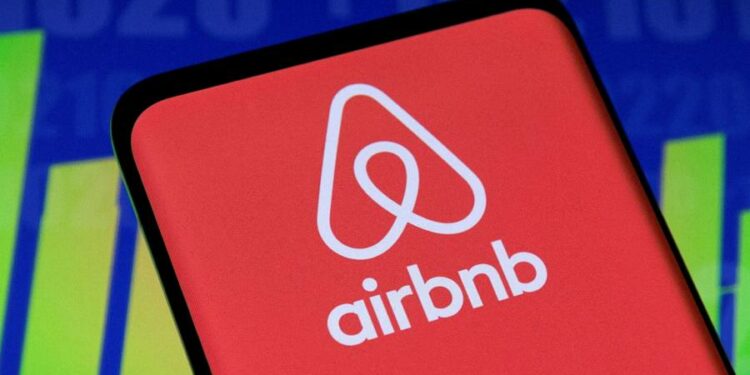Airbnb’s decision to allow its employees to work from anywhere is not just a way to lure talent. The room rental platform wants users to book increasingly long stays in Airbnb homes. Permitting its workforce to move around freely is a high-profile advertisement for that lifestyle.
Focusing on domestic travel and long-term stays — now a fifth of all nights booked — is the right decision. International business trips remain below 2019 levels. Corporate travel is still under 50 per cent of pre-pandemic spend, according to a report by Deloitte. A new Covid variant could push it down further.
Pent up demand for holidays is more resilient. After a terrible few months in 2020 when travel collapsed and Airbnb was forced to cut jobs, raise $2bn and focus on its core business, bookings have returned in full force.
The San Francisco-based company is expected to report its first year of positive net income this year. Keeping a grip on spending has already led to impressive free cash flow. In the first three months of the year it reported free cash flow of $1.2bn on $1.5bn of revenue. The first quarter figure is boosted by fees on bookings not yet recognised as revenue. But Airbnb’s price to free cash flow ratio over the past four quarters is 32 — close to Microsoft’s. That should support the share price for a company reporting faster revenue growth.
Expect Airbnb to spend more money now that revenue is going up and it has more than $9bn of cash and equivalents to hand. An update to the booking search function, which chief executive Brian Chesky calls the biggest change in a decade, will be announced next week. Perhaps it is the “special collaboration” with former Apple designer Jony Ive that was announced two years ago.
But Airbnb should consider ways to entice more hosts and improve the selection of accommodation on offer too. When it listed it had 5.6mn active listings. It now has 6mn. Prices are already comparable to hotels and longer stays are going to make users more picky. Quantity could increase the quality.











